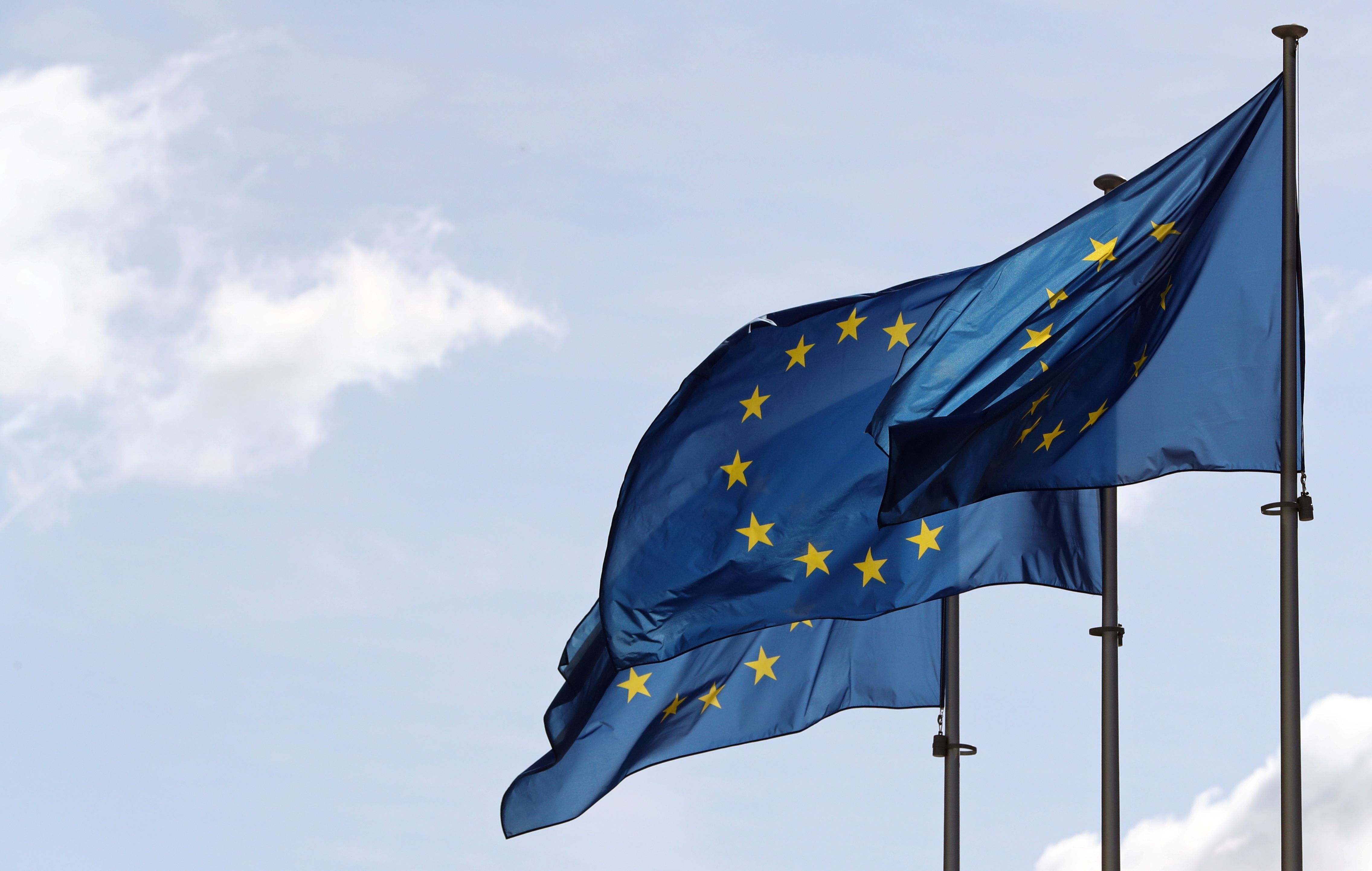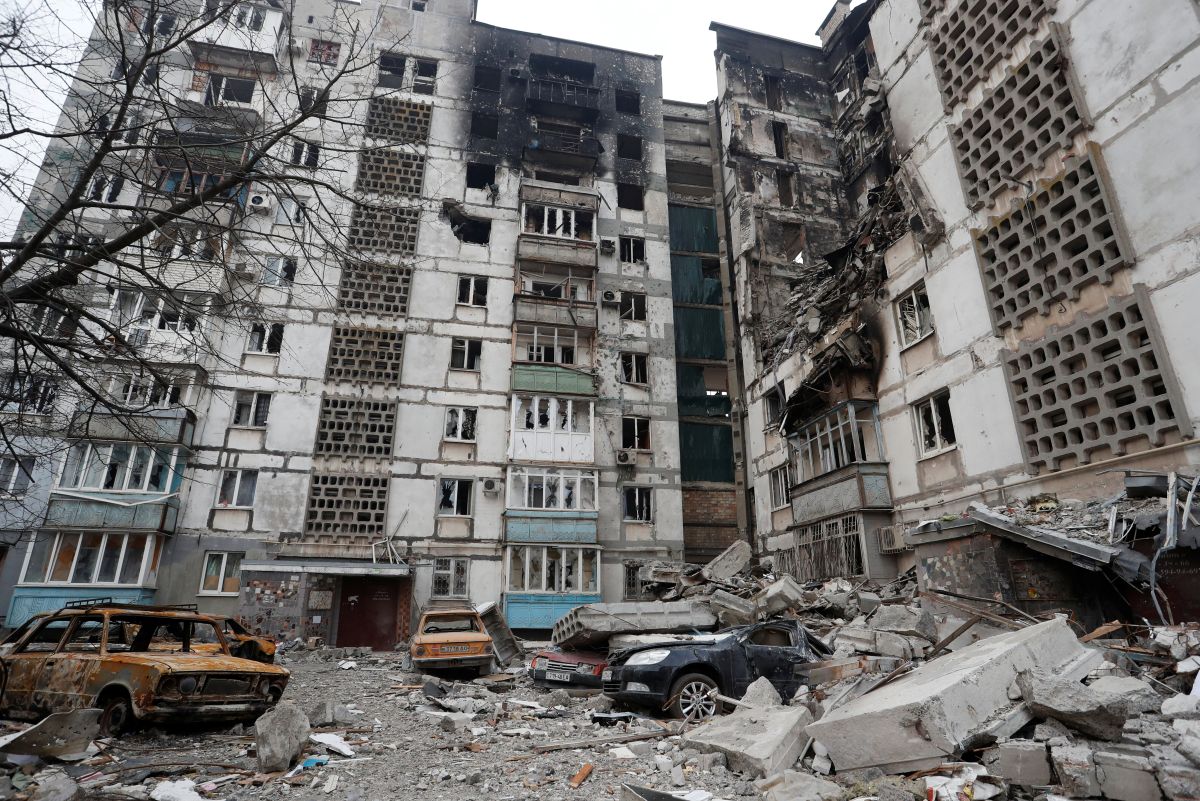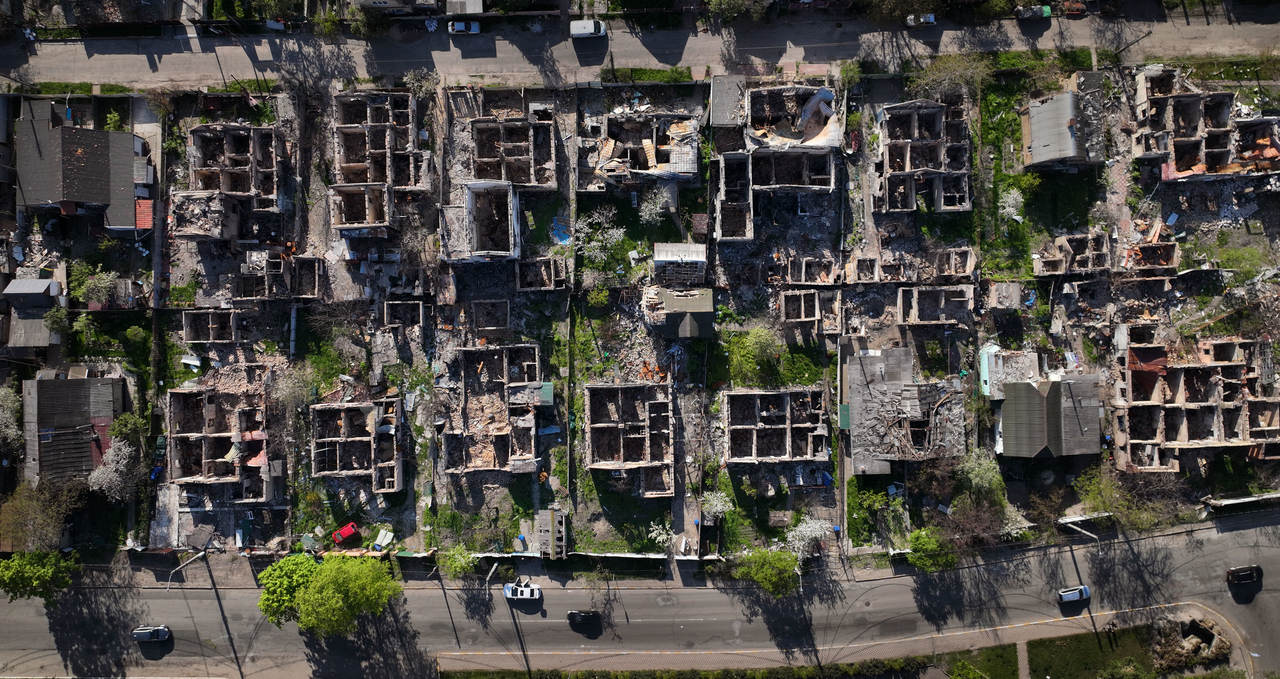Ukraine's Reconstruction Already on the Agenda
With the Russian invasion of Ukraine still ongoing, the international community is already preparing for the country’s reconstruction from the destruction of war. Earlier this year, the G7 countries established a platform to coordinate the future recovery of Ukraine. Still missing, nonetheless, is a decision regarding funding. Key to any successful reconstruction will be to provide post-war Ukraine with viable security guarantees, upon which the involvement of private investors will ultimately depend.
 Ukraine Presidency/Ukrainian Pre / Zuma Press / Forum
Ukraine Presidency/Ukrainian Pre / Zuma Press / Forum
The Russian aggression has brought widespread destruction across Ukraine. Material losses are estimated at around $140 billion, with the vast majority of it in the loss of housing and transport infrastructure. According to the World Bank, the cost of Ukraine’s reconstruction and post-war economic recovery exceeds $410 billion, more than double its pre-invasion GDP. Ukraine will not be able to rebuild after the war on its own and will need assistance from foreign partners.
An International Coalition for Reconstruction
In late January this year, more than six months after the Ukraine Recovery Conference in Lugano, Switzerland, a donor coordination platform for Ukraine commenced work under the aegis of the G7. Its objective is to ensure synergy between key donor countries and international financial institutions in assisting the Ukrainian authorities with economic stabilisation, post-war reconstruction, and reforms. The platform is co-chaired by Ukrainian Finance Minister Serhii Marchenko, European Commission (EC) Director General for Neighbourhood and Enlargement Gert Jan Koopman, and U.S. Deputy National Security Advisor Mike Pyle. For technical purposes, a secretariat has been set up at the EC headquarters in Brussels and with an office in Kyiv. The platform is expected to be open for non-G7 countries to participate, potentially including also large private investors.
In the short term, the platform will concentrate on maintaining Ukraine’s financial stability in the face of its economic downturn as a result of the Russian aggression, as well as supporting the most urgent reconstruction needs already before the hostilities end. The Ukrainian authorities have identified four short-term priorities: energy, housing, critical and social infrastructure, and demining. These are estimated to cost $14-17 billion and are likely to be funded predominantly by international donors. The Ukrainian authorities want the reconstruction to be partially financed from the blocked reserves of the Russian Central Bank, but this is unlikely for the time being due to a lack of appropriate legal mechanisms as well as political will in EU Member States. However, earmarking for this purpose the interest from frozen Russian assets held in EU banks is possible, and the EC proposal from last November goes precisely in this direction.
Private Investors
The funds from donor countries will be crucial in the early stages of the reconstruction when the priority will be on restoring social infrastructure as quickly as possible. But in the medium and long term, the success of reconstruction and the sustainable economic recovery of post-war Ukraine will be conditional on the large-scale involvement of private capital. The inflow of foreign investment and the corresponding technology transfer will, on the one hand, serve as a prerequisite for the modernisation of the Ukrainian economy. On the other, the involvement of private capital in reconstruction will stimulate the search for profitable investments, reducing the risk of a “foreign aid trap” in which Ukraine would remain dependent on external financial support after reconstruction is completed.
Foreign capital is to be attracted to Ukraine primarily by leading U.S. financial institutions. Since last autumn, experts from BlackRock, the world’s largest investment fund, have been advising the Ukrainian government on reconstruction planning and future use of funds. In February this year, the largest U.S. bank, J.P. Morgan, also started working with the Ukrainian government, providing advice, among other things, on financial stabilisation and asset management. Together with BlackRock and J.P. Morgan, Ukraine has been working on setting up an investment fund that would not only finance recovery work but also offer war-risk insurance to foreign investors. So far, at least a few other large foreign investment funds have expressed interest in participating in the reconstruction.
Ukrainian Preparations for Reconstruction
The donors underline that Ukraine’s reconstruction, despite its dependence on external funding, will be bottom-up, so its general direction and priorities will be determined by the Ukrainian side. Already in July 2022, at a conference in Lugano, the Ukrainian authorities presented a wide-ranging reconstruction programme, amounting to $750 billion and envisaging a comprehensive transformation of the country’s economy. The document, however, serves as a starting point for further planning rather than a conclusive list of measures. It does not take into account the subsequent destruction of critical infrastructure as a result of Russian missile attacks. Besides, it goes significantly beyond the question of reconstruction itself to include also funding for economic development and rearming the Ukrainian Armed Forces.
To oversee preparations for post-war recovery, the position of Deputy Prime Minister (DPM) for Reconstruction was created in December 2022 and assumed by former Infrastructure Minister Oleksandr Kubrakov, who simultaneously took the lead of the combined Ministry for Communities and Territories Development and Infrastructure. The creation of the super-ministry is intended to facilitate the coordination of efforts undertaken at the national and regional levels, especially considering the increased role of Ukrainian local self-government as a result of the decentralisation reform. Yet, it is unclear how the competences of the new DPM are to be shared with the Ukrainian finance minister co-heading the donor platform. Responsibility for the direct execution of individual projects and ongoing cooperation with foreign donors has been assumed by the newly created (January 2023) State Agency for Infrastructure Reconstruction and Development, headed by former Deputy Infrastructure Minister Mustafa Nayem.
Prospects
The first decisions regarding a coordination mechanism for Ukraine’s recovery indicate that there is unlikely to be a single, centralised international agency to manage reconstruction funding. Rebuilding of Ukraine will likely be decentralised, modelled on the Ukraine Defence Contact Group in Ramstein, with a leading role played by the G7-based international coalition.
The coalition mechanism will allow for greater flexibility in financing reconstruction due to the lack of a consensus imperative. However, working out unified aid modalities within the platform may prove challenging, ultimately limiting the effectiveness of the conditionality policy. The EC will seek to acquire a leading role in shaping the conditions so that it can stimulate Ukraine to implement EU standards and legal norms in the context of its aspiration to become an EU member.
The sources and nature of the funding for reconstruction, as well as the controlling mechanism for the disbursement of funds, remain unresolved. In the first place, the priority will be to ensure synergies and avoid duplication between public and private actors. Specific steps in this direction will probably be taken at the next Ukraine Recovery Conference, scheduled for June this year in London, which will focus on the wider involvement of private investors.
The involvement of private capital in Ukraine’s reconstruction will be essential for its post-war economic development; however, the entry of foreign investors into the Ukrainian market will largely depend on an improvement in the country’s security situation. In this context, crucial will be putting an end to hostilities and working out viable solutions to minimise the likelihood of a renewed Russian attack in the future, in particular by providing Ukraine with credible security guarantees. Also, it will be vital for the donor coalition to develop instruments mitigating investment risks in Ukraine, such as war-risk insurance, especially if the war turns into frozen conflict.
Poland, which already serves as the main gateway to world markets for Ukrainian exports, intends to play a leading role in the reconstruction of Ukraine. Poland’s importance may increase even further in the future due to the expansion of infrastructure links between the EU and Ukraine. Geographical proximity gives Poland an opportunity to become an entry point for foreign investors into Ukraine. And while the production potential and capital base of Polish companies are relatively limited, by partnering with Ukrainian entities, they can provide a counterbalance to major Western corporations that would want to take advantage of Ukraine’s reconstruction to seek expansion into this market.





